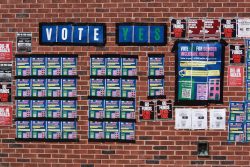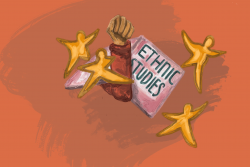Imagine being in a lecture class of 100 people, in which five or six come down with a disease. Normally they would be rushed off to treatment, and steps would be taken to ensure the safety of the rest of the students, right? Not if those students have an eating disorder, and five or six Hoyas in class probably do. According to the National College Health Assessment, 3.1 percent of Georgetown students reported having anorexia in 2006 and 3.6 percent reported having bulimia. Even more cases have certainly gone unreported.
Georgetown has an eating disorder problem. While the number of cases is comparable to other top-tier colleges, the University ranks very high on a nationwide scale. This year, the campus community is missing an invaluable tool in the fight against eating disorders: an active student support group, which used to be highly visible under the name Students Ending Eating Disturbances.
In the past, SEED played two important roles. First, it held peer counseling sessions. These meetings cannot be replicated by any non-student group. Peer counseling leaves no official records and offers the comfort of help from others with similar experiences who fully understand the difficulty of the situation. Peer counseling is especially important for eating disorders because of the social stigma attached to them. It’s easy to tell your friends and parents you have strep throat; it’s an incomparably larger burden to tell them you have anorexia or bulimia, especially without support. Most importantly, it’s a first step toward seeking professional treatment.
Second, SEED played an advocacy role, working to take the stigma out of eating disorders. Because so many people fail to understand the problem, they remain inappropriately judgmental and eating disorders still seem like a point of embarrassment.
SEED’s leadership abandoned the group last spring because it felt as if SEED’s mission had already been accomplished. Yet, the problem of eating disorders is not going away, and the end of peer counseling sessions combined with the lack of on-campus advocacy could make it worse.
The group is still on the Student Activities Commission’s roster of clubs, but it’s defunct. The enterprising students among us—especially those with a close connection to the issue—should build SEED from the ground up.




